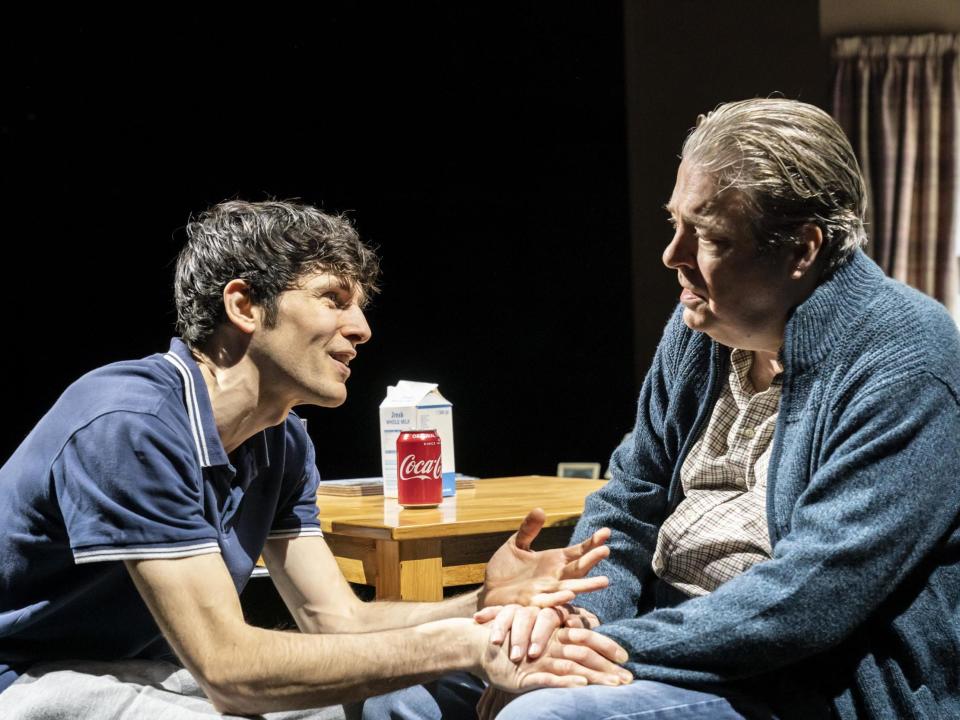A Number, Bridge Theatre review: Roger Allam stars in a brief and beautiful investigation into identity

Any number is a shock” – when it refers to cloned humans. Caryl Churchill’s A Number, which tackles the very modern debate over cloning and genetics, is revamped by Polly Findlay in a brief and unsettling performance at the Bridge.
A father places a heavy hand on his son’s shoulder and tells him that he is not his biological son. A surreal play of five acts follows, where he speaks first to his cloned son, then to the original and finally to one of ‘a number’ of the unintended additional facsimiles.
The father (Roger Allam), whose clothes hang off him with the fatigue of a lifetime of guilt and regret, eventually admits the unsettling family story behind the cloning process. He breaks extended periods of tense brooding with the humorous suggestion they sue the scientists. This trait seems to me a typically British solution to conflict.
Colin Morgan artfully switches between three sons, each reacting differently to the news that they are not biologically unique. “What am I?” cries the first clone in anguish. It goes further than simply nature or nurture, rather the act of cloning cultivates simultaneous ethical and existential crises.
Churchill has always played with form in her plays, and Findlay takes the idea of changing perspectives further by having the set literally spin 90 degrees between acts. The mundanity of a cluttered sitting room is contrasted with the pain of a broken family that science failed to heal.
The real son’s reaction, of visceral disgust, speaks to an innate sense of discomfort at the expanding boundaries of progress. Following in the footsteps of French dramatist Antonin Artaud’s Theatre of Cruelty, the audience is spared no tears or screams.
The play often takes on an absurd tone. “I remind myself of him!” declares one, having met the other. A “f**k” spat out of Allam’s mouth almost recalls Peter Mannion, his character in The Thick of It. Churchill, a political playwright par excellence, tactfully references current events. “I’m against the war” one character states, timelessly.
But perhaps most pivotal is the meeting between the grieving father and one of the accidental clones. He is impassive, to the extent he views the circumstances of his birth as a piece of trivia, far keener to recount the lives of his children and close family to his genetic father.
This is the key to genetics and identity, an issue that today threatens to rear its ugly head in British politics. Are ‘Who are you?’ and ‘What are you made from?’ the same question? Churchill’s answer comes in the form of a character who defines himself by his deeds and his loved ones, rather than the circumstances of his birth. That, ultimately, is a choice we all get to make.

